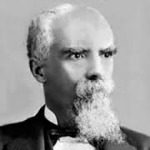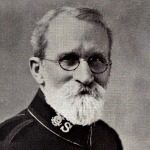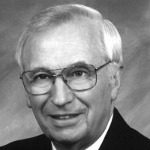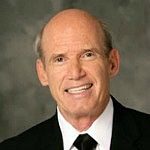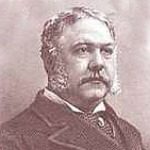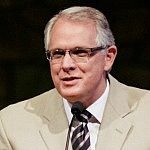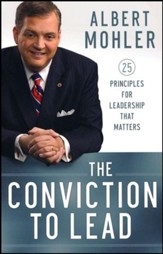Quotes about Leadership-Principles
They are not leaders because of brilliancy…but because, by the power of prayer, they could command the power of God.
Spiritual leadership is not won by promotion, but by prayers and tears. It is attained by much heart-searching and humbling before God; by self-surrender, a courageous sacrifice of every idol, a bold uncompromising, and uncomplaining embracing of the cross, and by an eternal, unfaltering looking unto Jesus crucified. This is a great price, but it must be unflinchingly paid by him who would be a real spiritual leader of men, a leader whose power is recognized and felt in heaven, on earth and in hell.
The Christian leader never equates mediocrity with the things of God, but is always committed to the pursuit of excellence.
A popular definition of leadership is that it is the art or science of getting things done through people.
The leader is only able to lead others because he has conquered himself and in turn has been conquered by Christ.
The eminence of great leaders of the Bible is attributed to their greatness in prayer.
To move men, the leader must be able to prevail upon God.
A true leader must have a strong drive to take the initiative to act – a kind of initial stirring that causes people and an organization to use their best abilities to accomplish a desired end.
To achieve, the leader must set goals
To set goals, he must make decisions.
To reach goals, he must plan.
To plan, he must analyze.
To analyze, he must implement.
To implement, he must organize.
To organize, he must delegate.
To delegate, he must administrate.
To administrate, he must communicate.
To communicate, he must motivate.
To motivate, he must share.
To share, he must care.
To care, he must believe.
To believe, he must set goals that inspire belief and the desire to achieve
Christian leadership is motivated by love and given over to service. It is leadership that has been subjected to the control of our Lord Jesus Christ and His example. In the best Christian leaders are expressed to the utmost all those attributes of selfless dedication, courage, decisiveness, and persuasiveness that mark great leadership.
The concept of a leader…means one who guides activities of others and who himself acts and performs to bring those activities about. He is capable of performing acts which will guide a group in achieving objectives. He takes the capacities of vision and faith, he has the ability to be concerned and to comprehend, exercises action through effective and personal influence in the direction of an enterprise and the development of the potential into practical and/or profitable means.
The following principles of leadership emerge from biblical teaching:
1. Christian leaders should be certain that their goal is to serve God and others, not to receive the title or honor that comes with leadership.
2. Leaders should not use their position for their own advantage or comfort. No task should be “beneath” them – although some tasks may be delegated. They should not ask others to do what they are unwilling to do themselves.
3. Leaders will seek to distinguish their own preferences from the will and welfare of the group as a whole.
4. Normally the position should seek the leader. There may be some situations in which persons may apply or volunteer. Nevertheless, when someone strongly desires a particular responsibility, his or her motivation should be carefully examined.
5. We must learn to see each other as valuable to the Lord and basically equal in his sight.
A good definition using the acrostic “DELEGATE”. D=Determine the ministry. E=Examine the duties. L=Lay out the leadership selection. E=Educate the leader. G=Guide the leader. A=Authorize the leader. T=Trust the leader. E=Evaluate the leader.
Real leaders are not those who simply get the job done. “Doing something well” does not a leader make. “Empowering others to do it well” does.
To put it simply, leadership is influence. The ideal leader is someone whose life and character motivate people to follow. The best kind of leadership derives its authority first from the force of a righteous example, and not merely from the power of prestige, personality, or position. By contrast, much of the world’s “leadership” is nothing but manipulation of people by threats and rewards. That is not true leadership; it’s exploitation. Real leadership seeks to motivate people from the inside, by an appeal to the heart, not by external pressure and coercion.
The effectiveness of leadership is measured in terms of influence. When you see someone’s influence reflected so profoundly in the lives of other people, you have identified someone who is by definition a leader.
True leadership is tested and proved in crises. The real leader is the one who can handle the stress. He is the one who can solve the problems, bear the burdens, find the solutions, and win the victories when everyone else is merely flustered, confounded, and perplexed.
People who are not inquisitive simply don’t make good leaders. Curiosity is crucial to leadership. People who are content with what they don’t know, happy to remain ignorant about what they don’t understand, complacent about what they haven’t analyzed, and comfortable living with problems they haven’t solved – such people cannot lead. Leaders need to have an insatiable curiosity. They need to be people who are hungry to find answers. Knowledge is power. Whoever has the information has the lead. If you want to find a leader, look for someone who is asking the right questions and genuinely looking for answers.
The standard for worldly leadership is to accomplish the leader’s desires through people. In the church, pastors have the privilege of seeing things God desires done in people.
According to [the Bible], a leader is first and foremost a servant. His concern is not for himself; his concern is not to give orders, to boss other people around, to have his own way. His concern is to meet the needs of others.
A leader must have a servant’s heart. And if he has a servant’s heart, he will act like a servant and react like a servant when he is treated like a servant.
Leaders of character produce organizations of character because character, like conviction, is infectious. Followers are drawn to those whose character attracts them as something they want for themselves.
The leader may have the most brilliant strategy in his mind, the most breathtaking vision in his sights, and an irrepressible passion in his heart, but if these are not communicated to others, real leadership just doesn’t occur.
If a leader has to look for a message, his leadership is doomed. Leaders communicate because they cannot not communicate, and their message flows out of them as naturally as a geyser releases its energy. This is the essence of convictional leadership. The message flows out of your deepest convictions and most passionately held beliefs. The most powerful leaders are those whose beliefs function like an engine of meaning – pushing out words and messages and compelling communication.
Managers can do their work by ordering people to do something, but leaders are never satisfied with people taking orders. Leaders want to see every member of the organization learn what must be done, and why. Leaders are not satisfied until every individual understands the mission, embraces it, and bring others into it.
The Conviction to Lead, 2012, Bethany House Publishers, p. 20, Used by Permission.
Get this book!
When a leader walks into the room, a passion for truth had better enter with him. Authentic leadership does not emerge out of a vacuum. The leadership that matters most is convictional—deeply convictional. This quality of leadership springs from those foundational beliefs that shape who we are and establish our beliefs about everything else. Convictions are not merely beliefs we hold; they are those beliefs that hold us in their grip. We would not know who we are but for these bedrock beliefs, and without them we would not know how to lead.
Convictions are not merely beliefs we hold; they are those beliefs that hold us in their grip. We would not know who we are but for these bedrock beliefs, and without them we would not know how to lead.
Contrast the priority of convictional intelligence with the models of leadership that are often found and even admired in some Christian circles. Charisma is a great gift, but it cannot substitute for conviction. The same is true of personality skills, gifts of communication, media presence, and organizational ability. None of these things can qualify a Christian leader when conviction is absent or weak.
Leaders have to make decisions day by day. Convictional leaders are determined to make the right decisions, grounded in those convictions. But at the end of the day, all we can do is make the best decisions we can, knowing that the final verdict will not come from shareholders, board members, church members, or even historians, but from God. “Well done, good and faithful servant” is the verdict for which we strive and hope. The decision to aim for that verdict is one we had better make right now before it is too late.
The Conviction to Lead, Bethany House Publishers, 2012, p. 147, Used by Permission.
Get this book!
Leadership may be defined as the ability…to develop other people’s maximum potential for their own works of service in the body of Christ (Derek Prime and Alistair Begg).
On Being a Pastor, Moody Press, 2004, p. 237. Get this book!
Christian leadership models itself upon our Lord Jesus Christ. One of the paradoxes of His ministry was that although He was so obviously the leader, He was conspicuously the servant. He illustrated and underlined this truth when He washed the disciples’ feet (John 13). We are spiritually effective as leaders as we follow His example. Although leaders, we are first and foremost servants (Derek Prime and Alistair Begg).
On Being a Pastor, Moody Press, 2004, p. 219. Get this book!
Never are church leaders to think of their status as lordship, but as servanthood. Note the following about true spiritual leaders: Spiritual leaders do not dominate, they serve. Spiritual leaders do not command, they guide. Spiritual leaders do not manipulate, they teach. Spiritual leaders are not lords, they are models and ministers. Whenever these truths are ignored, church leaders become dictators, overbearing and ugly. The love of preeminence, greatness, and authority is the antithesis of Biblical leadership. Leaders must remind themselves that they are servants of the church; their power is the power of example, teacher, and servant. The real power of leaders is the Word of God spoken through them and exemplified in them! (Larry Hess)
Developing the Leader Within You, www.faithlibrary.cc/index.php/christian-sermons/sermon/developing_the_leader_within_you
Leaders have an agenda, look for ways to incorporate others into their plans, and have a high need for control in life. Balanced with graciousness, leaders become a treasure because they make things happen, create organization out of chaos, and motivate people to action (Scott Turansky and Joanne Miller).
Parenting is Heart Work, National Center for Biblical Parenting, 76 Hopatcong Drive, Lawrenceville, NJ 08648, www.biblicalparenting.org, 1-800.771.8334, email parent@biblicalparenting.org.
[Leadership is] knowing where God wants people to be and taking the initiative to get them there by God’s means in reliance on God’s power.
[Spiritual leadership is] knowing where God wants people to be and taking the initiative to get them there by God’s means in reliance on God’s power.
Servanthood does not nullify leadership; it defines it. Jesus does not cease to be the Lion of Judah when He becomes the lamblike servant of the church.
This Momentary Marriage – A Parable of Permanence, Desiring God Foundation, 2008, p. 78, www.DesiringGod.org.
Leaders who want to show sensitivity should listen often and long, and talk short and seldom. Many so-called leaders are too busy to listen. True leaders know that time spent listening is well invested.
Spiritual Leadership, Moody Publishers, 1967, p. 75. Get this book!
True greatness, true leadership, is found in giving yourself in service to others, not in coaxing or inducing others to serve you.
Dwight L. Moody once said that he would rather put a thousand men to work than do the work of a thousand men.
Spiritual Leadership, Moody Publishers, 1967, p. 137. Get this book!
One facet of leadership is the ability to recognize the special abilities and limitations of others, combined with the capacity to fit each one into the job where he or she will do best. To succeed in getting things done through others is the highest type of leadership.
Spiritual Leadership, Moody Publishers, 1967, p. 137. Get this book!
Procrastination, the thief of time, is one of the devil’s most potent weapons for defrauding us of eternal heritage. The habit of “putting off” is fatal to spiritual leadership. Its power resides in our natural reluctance to come to grips with important decisions. Making decisions, and acting on them, always requires moral energy. But the passing of time never makes action easier; quite the opposite. Most decisions are more difficult a day later, and you may also lose an advantage by such delay. The nettle will never be easier to grasp than now.
Spiritual Leadership, Moody Publishers, 1967, p. 98. Get this book!
If a Christian is not willing to rise early and work late, to expend greater effort in diligent study and faithful work, that person will not change a generation. Fatigue is the price of leadership.
Spiritual Leadership, Moody Publishers, 1967, p. 119. Get this book!
If leaders are to survive, they must view the difficult as common-place, the complex as normal.
Spiritual Leadership, Moody Publishers, 1967, p. 132. Get this book!
The leader must use God’s power to move human hearts in the direction he believes to be the will of God. Through prayer the leader has the key to that complicated lock… In prayer we deal directly with God and only in a secondary sense other people. The goal of prayer is the ear of God. Prayer moves others through God’s influence on them. It is not the prayer that moves people, but the God to whom we pray.
Good effective spiritual leaders infuse others with an animating, quickening and exalting spirit of enthusiasm for the person of Christ, growth in Christ and the mission of the church.
If a man is known by the company he keeps, so also his character is reflected in the books he reads. A leader’s reading is the outward expression of his inner hungers and aspirations.
Failing to delegate, the leader is caught in a morass of secondary detail; it overburdens him and diverts his attention from primary tasks. People under him do not achieve their own potential. In some cases, insisting on doing a job oneself is a result of simple conceit.
A leader will seldom say, “I don’t have the time.” Such an excuse is usually the refuge of a small-minded and inefficient person. Each of us has the time to do the whole will of God for our lives.
Most Bible characters met with failure and survived. Even when the failure was immense, those who found leadership again refused to lie in the dust and bemoan their tragedy. In fact, their failure and repentance led to a greater conception of God’s grace. They came to know the God of the second, chance, and sometimes the third and fourth.
The most effective churches that I know are churches where the ministerial staff devote many hours in training and mobilizing their congregations to be mighty armies of saints, as they minister to a dying world.
The Purpose of God, An Exposition of Ephesians, Christian Focus Publications, 1994, p. 103.
We cannot sit back and wait for the sheep to lead. A few will, but by and large they are looking to us for direction, feeding, and leadership by our stepping out courageously in faith.
Practical Wisdom for Pastors, Crossway Books, 2001, p. 95. Get this book!
Leadership involves taking bold steps forward, not simply reacting. It involves courage and the ability to take occasional spiritual lumps. It involves faith in a sovereign God and a trust that His Word works. It involves a sacrificial love for the flock, a love that will move us to lay down our lives for God’s people.
Practical Wisdom for Pastors, Crossway Books, 2001, p. 96. Get this book!
The true Church has never sounded out public expectations before launching her mission. Her leaders heard from God, they knew their Lord’s will and did it. Their people followed them- sometimes to triumph, oftener to insults and public persecution – and their sufficient reward was the satisfaction of being right in a wrong world
We need a baptism of clear seeing. We desperately need seers who can see through the mist – Christian leaders with prophetic vision. Unless they come soon it will be too late for this generation. And if they do come we will no doubt crucify a few of them in the name of our worldly orthodoxy.
When a general gets too far ahead of his troops, he’s often mistaken for the enemy.
The Christian leader has a will totally willing at all times to will the will of God.
Quoted in: Ted W. Engstrom, The Making of a Christian Leader, Zondervan, 1976, p. 204. www.zondervan.com.
The world needs men who cannot be bought; whose word is their bond; who put character above wealth; who possess opinions and a will; who are larger than their vocations; who do not hesitate to take chances; who will not lose their individuality in a crowd; who will be honest in small things as in great things; who will make no compromise with wrong; whose ambitions are not confined to their own selfish desires; who will not say they do it “because everyone else does it;” who are true to their friends through good report and evil report, in adversity as well as in prosperity; who do not believe that shrewdness, cunning and hardheadedness are the best qualities for winning success; who are not ashamed or afraid to stand for the truth when it is unpopular, who can say “no” with emphasis, although all the rest of the world says “yes.”
Quoted in: Ted W. Engstrom, The Making of a Christian Leader, Zondervan, 1976, p. 120. www.zondervan.com.
Four steps to achievement:
1. Plan purposefully.
2. Prepare prayerfully.
3. Proceed positively.
4. Pursue persistently.
The trustworthy leader, then will serve God best by feeding others with God’s food, reproving them with God’s Word, tending them with God’s heart, and disciplining them with God’s grace.
